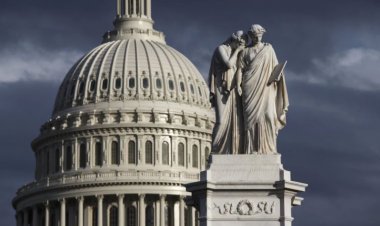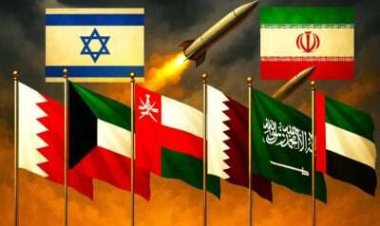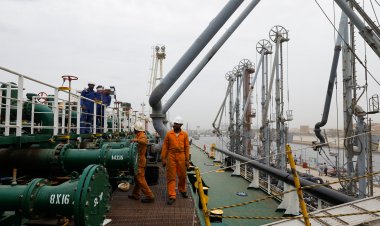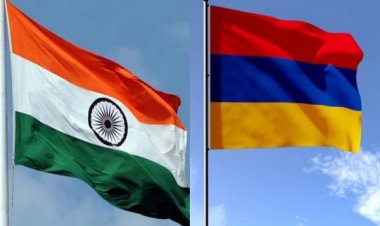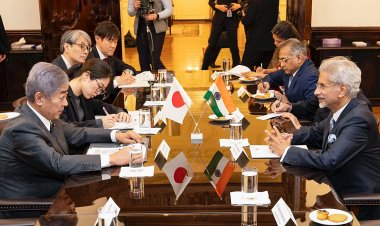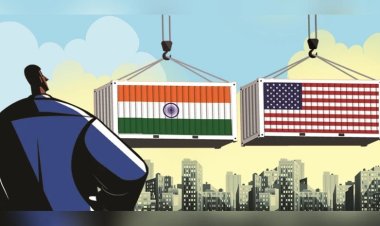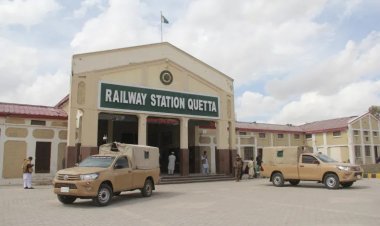Escalating tensions between Venezuela and Guyana over Essequibo Territory
This explainer discusses the territorial dispute between Venezuela and Guyana over the Essequibo region, a 160,000-square-km heavily forested border territory with significant oil and gas reserves.

Explainer
By Niharika Godara
Current situation
- Territorial Dispute: Venezuela and Guyana are embroiled in a territorial dispute over the Essequibo region, a 160,000-square-km heavily forested border territory with significant oil and gas reserves.
- US Involvement: The United States has thrown its support behind Guyana, conducting military exercises and "flight operations" with Guyana's armed forces. This move is consistent with the US's historical opposition to Venezuela and its sanctions on the country.
How it started
- 1899 Decision: The current dispute stems from the 1899 decision that established the border when Guyana was part of the British Empire. Venezuela rejects this boundary as "arbitrary" and imposed by foreign colonial powers.
- Recent Developments: The discovery of oil in Essequibo in 2015 intensified the decades-old dispute. Tensions escalated with a Venezuelan referendum where over 95% of voters supported the government's claim to Essequibo, rejecting the International Court of Justice's jurisdiction. This move is seen as President Maduro's attempt to showcase strength ahead of the 2024 elections. Following the outcome of the referendum, President Maduro undertook legal maneuvers to establish a Venezuelan province in Essequibo. Additionally, he instructed the state-owned oil company to issue licenses for the extraction of crude in the region.
Diplomatic efforts
- Venezuelan President Nicolas Maduro and Guyanese President Irfaan Ali are set to meet on December 14 in Saint Vincent and the Grenadines to address the escalating dispute over the Essequibo region.
- Mediation Efforts: The meeting, facilitated by the Caribbean country’s Prime Minister Ralph Gonsalves, is organized under the auspices of the Community of Latin American and Caribbean States (CELAC) and the Caribbean Community. Brazilian President Luiz Inacio Lula da Silva has been invited at both sides' request.
- UN Security Council Involvement: The United Nations Security Council held a closed-door meeting on the growing dispute, underscoring the international concern surrounding the situation.
- Global Appeals for De-escalation: The United States, Britain, Russia, and South American countries have urged de-escalation and a peaceful resolution. There are calls for adherence to international law and a commitment to avoiding the use or threats of force.
- Maduro's Perspective: President Maduro, through social media, expressed his commitment to defending Venezuela's historic rights and defeating what he sees as lies, provocations, and threats.
- Ali's Stance: President Ali of Guyana reiterated the country's commitment to resolving the dispute through the International Court of Justice (ICJ) and not through direct negotiations. This reflects a divergence in the leaders' approaches to resolving the issue.
- Venezuela's Approach: Venezuela's diplomatic signals, not directly attacking Guyana or its president, can be interpreted as an openness to dialogue. Some foreign affairs analysts suggest that the core contention might be with ExxonMobil, seen as influencing Guyana's government.
Regional and Global responses
- Joint Declaration by South American Countries: Argentina, Brazil, Chile, Colombia, Ecuador, Paraguay, Peru, and Uruguay issued a joint declaration calling for negotiations between the parties to seek a peaceful solution.
- Lula's Involvement: Former Brazilian President Lula da Silva, in contact with both leaders, proposed talks through CELAC and warned against unilateral measures that could escalate the situation.
- Growing Concern in South America: The dispute has raised concerns in South America, historically a relatively peaceful region. Several leaders, including Colombian President Gustavo Petro, have expressed worries about the potential for escalation and the negative consequences of a conflict.
- Brazil's Reinforcements: Brazil has expressed opposition to a military clash, reinforcing its border with Venezuela to ensure territorial inviolability. It has deployed additional troops to its northern borders with Guyana and Venezuela, indicating the seriousness of the situation and the perceived risk of regional instability.
- Russian Neutrality: Russia, a traditional ally of Venezuela, has taken a neutral position, not directly involving itself in the dispute. This reflects Moscow's cautious approach to avoid being drawn into broader geopolitical rivalries.
- Global Appeals for De-escalation: The United States, Britain, Russia, and South American countries have urged de-escalation and a peaceful solution.
Possible outcomes
- Military Concerns: The US's military engagement with Guyana has raised concerns about foreign military intervention in the region. Both Brazil and the US emphasize the need for a peaceful resolution, while Venezuela views these actions as interference.
- Logistical Challenges: Any Venezuelan military incursion into Essequibo is deemed logistically challenging, requiring passage through Brazilian territory due to difficult terrain elsewhere.
- Economic Stakes: The presence of significant oil and gas reserves in the disputed territory, already exploited by Exxon Mobil and others, adds economic stakes to the conflict.
Conclusion
The situation involves a complex interplay of historical disputes, economic interests, and geopolitical alignments. The upcoming meeting between the presidents provides an opportunity for diplomatic resolution, but conflicting views, international involvement, and economic stakes could impact the outcome. Global calls for de-escalation highlight the broader concern about the potential consequences of a military conflict in the region. The outcomes of the meeting will be closely watched for signals of either peaceful resolution or a further escalation of tensions.
Disclaimer: This paper is the author's individual scholastic contribution and does not necessarily reflect the organization's viewpoint.
Niharika Godara completed her graduation in Political Science Hons from DU and currently pursuing Masters in International Relations from JGU. Her interest areas are geopolitics and diplomacy and the role of international institutions in addressing global challenges.

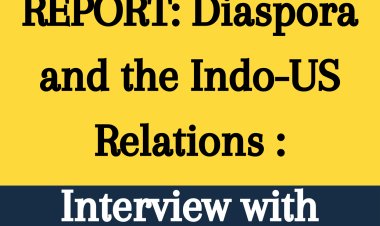


/media/img/mt/2020/06/Atlantic_Biden_foreign_pol_v1/original.png)

